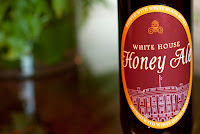But there is one sport I'm passionate about: Duke basketball. As another Duke alumna remarked to me, "Once a Cameron Crazy, always a Cameron Crazy."
My beloved Blue Devils, defending NCAA champions, take the court this afternoon in the first round of the NCAA Tournament, and Blue Devils worldwide are all a-Twitter on the likelihood that stellar freshman point guard Kyrie Irving will return to action after a three-month absence from an injured toe. The possibility of a repeat hasn't been this tangible since 1992, when Duke's dominance prompted some fans to refer to the championship tournament as the "Duke Invitational."
Playing on those repeat championship teams of 1991 and 1992 was Grant Hill, and he's getting as much attention in the sports world this week as is Kyrie Irving. The New York Times published Hill's response to comments from former University of Michigan player Jalen Rose, who said in an ESPN documentary that he hated Duke in college because he thought Duke only recruited black players who were "Uncle Toms."
Grant's eloquent words and exemplary humanity make me far more proud to share an alma mater with him than do the championship titles he brought our school. I graduated in 1986, so I never had an opportunity to watch Grant from the bleachers in Cameron. Although I pay little attention to the NBA, I probably know more about Grant's post-Duke career than I do about any other alum, save Johnny Dawkins. I know he was drafted by the Pistons and has been lauded as a role model both on the court and off. I also know he collects African-American art and has exhibited his collection at Duke's Nasher Museum.
He writes in the NYT:
This is what a good education meant to me, and what I want for my own children. I know that many institutes of higher learning, not just Duke, offer their students such an education. I also firmly believe that a good education need not be formal; some very thoughtful people have been self-educated or relied on the guidance of one or more mentors.A good education is a privilege.Just as Jalen has founded a charter school in Michigan, we are expected to use our education to help others, to improve life for those who need our assistance and to use the excellent education we have received to better the world.
My oldest is an 11th-grader and the college decision is on our family's near horizon. I want to avoid wasting our money and his and that of any generous scholarship donors on an experience that may teach little more than how to tap a keg and fill out a job application. I've also heard educators (including my son's high school principal) comment that a college degree does not necessarily offer the employment advantage it did a generation ago, and others have noted it may be a wasted investment for many students.
In one eloquent column, Grant Hill reminds us of what a true education is all about. It's not about landing a high-paying job, recognition or awards. The true goal is to shape a person, a generation and future generations to leave the world better than we found it. We may fall short, but we should never be derided for trying.
Many professors, as well as other students, helped shape my future during my Duke years, but two in particular stand out. It was in Bruce Payne's class on Ethics for Public Policy Makers that I learned to think deeply about the goals and unintended consequences of decisions and to learn how the best and the brightest have navigated all those murky gray waters. A visiting Duke lecturer, esteemed journalist Robin Wright, was my most valued mentor and the person I credit with inspiring me to pursue writing, rather than a law degree, as a powerful means of contributing to the world's needs. Although my journalism career did not unfold the way Robin may have anticipated (as evidenced by my current location of Traverse City, not Afghanistan), Robin's influence fundamentally shaped who I have been for the past 25 years.
Now let the hoops action begin! Go Duke!!!
